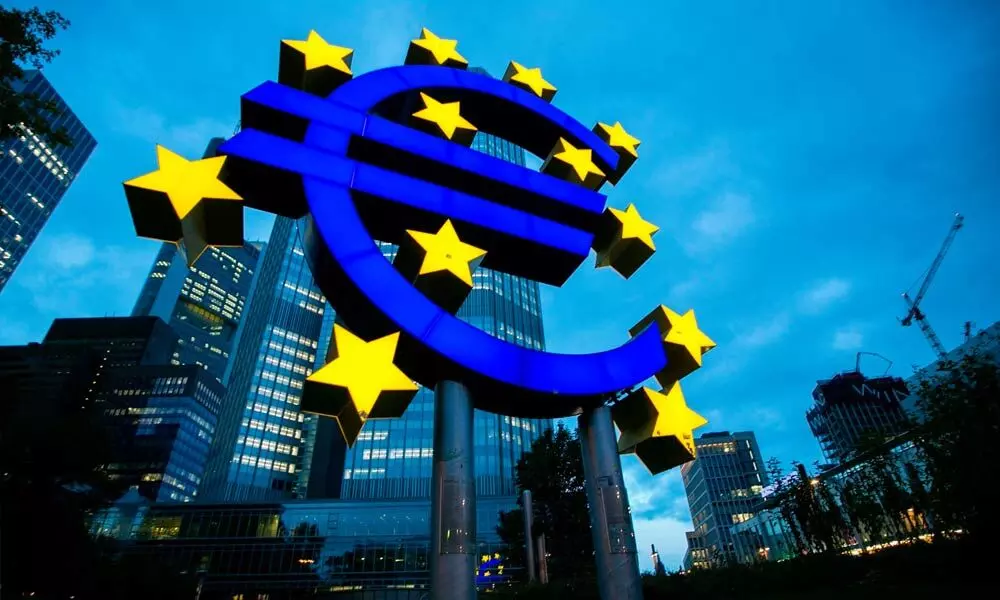Inflation target still a challenge for ECB
Extending bond-buying program as economy slipping into recession
image for illustrative purpose

As recognized by the ECB, growth prospects are now mainly a function of the public health outlook, including how quickly the adoption of effective vaccines allow for some meaningful return to economic and social norms
By expanding and extending its bond-buying program on Thursday, the European Central Bank (ECB) made a policy decision that is understandable, but unlikely to bolster the economy much or attain its inflation objective. In particular, it highlights the active inertia that the ECB finds itself in, one that has largely not been of its own making.
Given the economic and market circumstances facing the ECB, I suspect that the vast majority of its Governing Council felt that they had no choice but to do more of the same in terms of quantitative easing. That resulted in its decision to expand the Pandemic Emergency Purchase Program by 500 billion euros ($607 billion) and extend it by nine months while making its implementation somewhat more flexible, together with a 12-month extension of favourable funding for banks under the targeted longer-term refinancing operations. After all:
l The European economy is slipping into recession.
l Inflationary expectations remain, to use the formulation of ECB President Christine Lagarde, disappointingly low.
l There is concern about the strength of the euro.
l Brexit uncertainty is not yet resolved.
l With markets having already priced in more ECB action, it is possible that failure to follow through could have provoked financial instability that would have spilled back into the already weakening economy.
Having said this, it is unlikely that the ECB's actions will have much impact on growth, inflation and the currency. Indeed, doing more of the same on the policy front should not be confused with a material probability of obtaining a significantly better outcome than before. It is a classic case of what behavioural scientists call active inertia - and here, it is a conscious choice by the ECB.
As recognized by the ECB, growth prospects are now mainly a function of the public health outlook, including how quickly the adoption of effective vaccines allow for some meaningful return to economic and social norms. Not only is the ECB unable to substantially alter the growth outlook in the short term, it can't do much on its own to counter the continuing "scarring" that lowers potential growth.
Meanwhile, the inflation outlook is even more uncertain because structural influences are becoming much more multifaceted, even possibly increasing the prospects of "bad inflation" should the ECB's desired outcome of moving quickly toward its 2 per cent target be met any time soon. And, of course, the Brexit negotiations are entirely outside its control.
As for the currency, it is notable that the ECB did not take the one policy action that could have had an impact - that is, pushing policy interest rates further into negative territory. I suspect that this reflects deepening recognition that this element of the policy toolbox is now seen correctly as delivering few benefits while risking considerable collateral damage and unintended consequences. Also, in making the monthly implementation of the bond-buying program more flexible in amount should it deem that preferable, the ECB did not expand the eligible securities in any significant manner, notwithstanding the inclusion of variable-coupon green bonds.
I don't seem to be alone in interpreting Thursday's action as conscious active inertia. The actions and statements of others suggest they may also be in agreement.
At the end of the ECB press conference that followed its policy decision, key markets reverted back to their levels before the actions were announced. Meanwhile, the ECB's repeated and correct emphasis on the need for other policy makers to do more is consistent with the view that although more of the same monetary policy may be necessary - and this will (and should) be increasingly debated - it certainly is not sufficient.
The best that can be said for the ECB's actions is that they reflect the central bank's commitment to a holding operation in the hope that vaccines and other policy makers will come to the rescue and carve a path out of an increasingly ineffective and potentially, to use the phrase of my former Pimco colleague Chris Dialynas, "no exit" policy paradigm. The risk, and it is a material one, is the longer it finds itself in this situation, the greater the threats to its longer-term policy impact and credibility.
(To contact the author of this story: Mohamed A. El-Erian at [email protected])
Mohamed A. El-Erian

